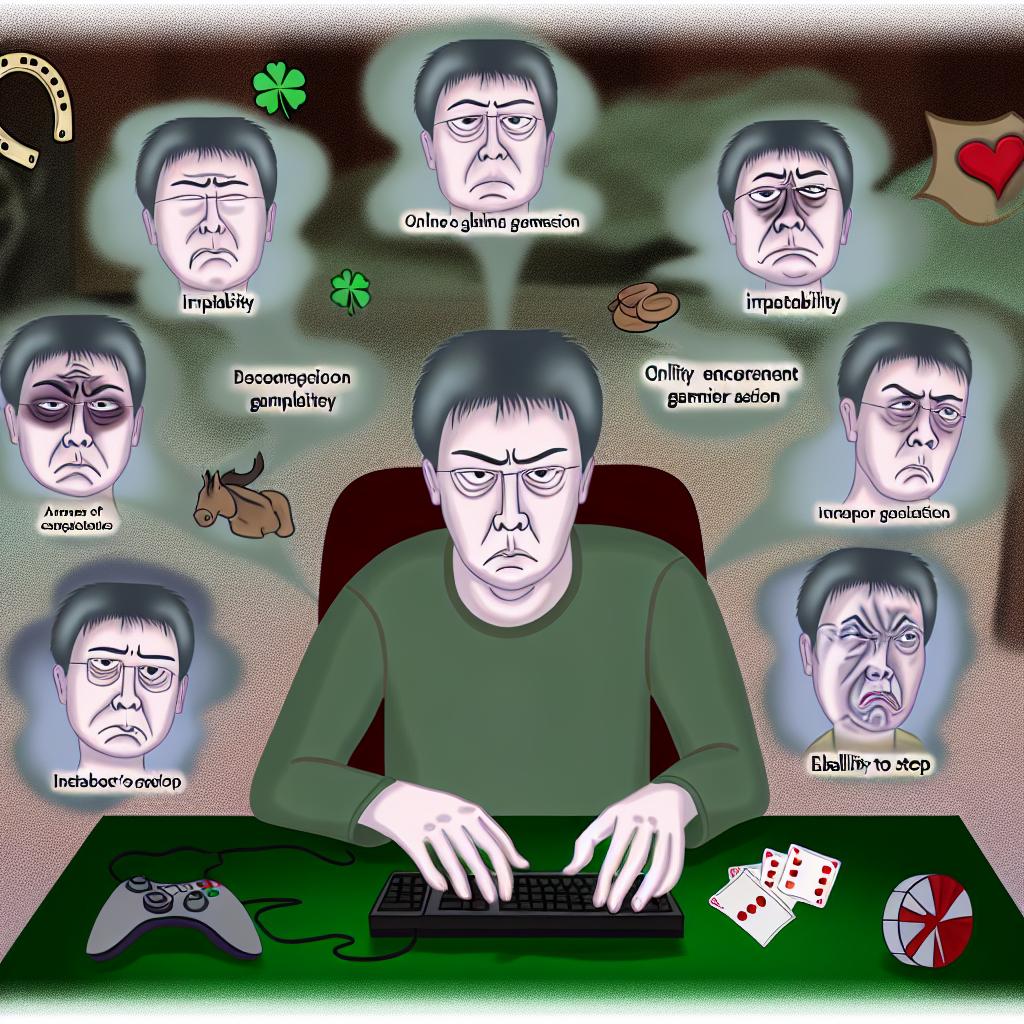Introduction to Gaming Addiction
Gaming addiction has become a topic of increasing interest and concern in recent years. This phenomenon is driven by the rapid rise of digital technology and the widespread popularity of online gaming platforms. As more individuals become immersed in gaming, understanding the personality traits associated with gaming addiction becomes crucial. By identifying these traits, we can develop effective prevention and treatment strategies that cater to those at risk.
Defining Gaming Addiction
Gaming addiction, also known as Internet Gaming Disorder (IGD), is characterized by a pattern of problematic gaming behavior that results in significant impairment or distress in one’s life. The American Psychiatric Association has acknowledged the potential severity of this disorder by including it in the appendix of the fifth edition of the Diagnostic and Statistical Manual of Mental Disorders (DSM-5) as a condition that requires further study.
Overview of Personality Traits
Research has identified that certain personality traits may predispose individuals to gaming addiction. By examining these traits, we can gain a deeper understanding of why certain individuals are more susceptible to addictive gaming behaviors.
Neuroticism
Neuroticism is a personality trait characterized by emotional instability, anxiety, and moodiness. Those who score high on neuroticism may find an escape in gaming as a way to manage or avoid negative emotions. This use of gaming as a coping mechanism may increase their risk of developing an addiction.
Introversion and Extroversion
It is a common misconception that only introverted individuals are prone to gaming addiction. In reality, both introverted and extroverted individuals can be vulnerable. Introverts may find comfort and a sense of control in the structured and predictable environment of virtual worlds. On the other hand, extroverts might be drawn to the interactive and social components of multiplayer games, where they can engage with others. The Society for Media Psychology and Technology has published research that delves into these dynamics in more detail.
Impulsivity
Impulsivity is a trait marked by acting on a whim and seeking immediate rewards without considering the consequences. Individuals with high impulsivity may find themselves engaged in longer gaming sessions as they pursue the instant gratification that games often provide.
Sensation Seeking
Persons marked by high levels of sensation seeking tend to crave new and thrilling experiences. The immersive nature of games, often filled with unpredictability and excitement, can fulfill their need for novelty, making them more susceptible to gaming addiction.
Conscientiousness
Low levels of conscientiousness are associated with a lack of self-discipline and organization. Individuals with low conscientiousness may struggle to regulate their gaming time and balance it with their responsibilities. This difficulty in managing priorities can lead to excessive gaming habits.
The Role of Other Psychological Factors
Apart from personality traits, other psychological factors can influence gaming addiction. For instance, individuals experiencing stress, loneliness, or depression might use gaming as an escape from their reality. When such emotional issues overlap with specific personality traits, the risk of gaming addiction can increase significantly.
Environmental Influences
The environment in which one resides can also play a role in gaming addiction. Access to technology, family attitudes towards gaming, and the presence of other recreational activities influence one’s likelihood to become addicted. In environments where gaming is a significant pastime or heavily promoted, individuals may be more prone to excessive gaming behaviors.
Social Dynamics
The social aspects of gaming are increasingly recognized as critical components. Multiplayer games often foster communities, and individuals may become addicted to not just the gameplay but also the relationships and social interactions they form. Online settings might allow individuals to present versions of themselves uninhibited by the constraints of the physical world, further embedding them into the gaming lifestyle.
Strategies for Prevention and Treatment
Recognizing the Signs
Detecting early signs of gaming addiction can facilitate timely intervention. Indicators such as declining performance at work or school, neglect of personal responsibilities, and changes in physical health might point towards a developing addiction.
Promoting Healthy Gaming Habits
Encouraging moderation and promoting scheduled gaming times can be beneficial. Incorporating this structured approach helps in balancing gaming with other life activities, reducing the likelihood of addictive patterns forming.
Cognitive Behavioral Therapy
Cognitive Behavioral Therapy (CBT) has emerged as an effective treatment method for gaming addiction. CBT helps individuals understand their gaming behaviors and emotions, allowing them to develop healthier coping strategies. By addressing underlying emotional issues, CBT can significantly reduce the compulsion to game excessively.
Family and Peer Involvement
Family support and peer involvement are critical in prevention and recovery from gaming addiction. Open dialogues and supportive environments can aid individuals in managing their gaming habits.
Conclusion
Understanding personality traits and their association with gaming addiction is crucial in identifying at-risk individuals and developing targeted prevention and treatment strategies. Continued research in this field is needed to address the complexities surrounding gaming addiction, helping those affected regain control over their lives. For further information on studies related to gaming addiction and associated personality traits, one can visit the National Center for Biotechnology Information library.

